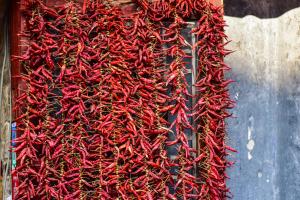Introduction
Tropical plants are known for their vibrant and lush foliage. To maintain their health and beauty, proper care is essential. One of the most critical factors is providing them with adequate water. However, with so many different types of tropical plants available, it can be challenging to determine the optimal watering frequency. In this article, we will explore how often you should water tropical plants.
Factors that Affect Watering Frequency
Before discussing the ideal watering schedule, it is essential to understand the factors that influence how often tropical plants need to be watered. The two primary factors are the type of plant and the environmental conditions.
Type of Plant
Different types of tropical plants have varying water needs. While some species thrive in moist soil, others prefer a drier environment. For example, ferns and palms need more water than succulents and cacti. It is crucial to research the specific needs of individual plants before determining their watering schedule.
Environmental Conditions
The environmental conditions, such as the temperature, humidity, and amount of sunlight, also affect how often tropical plants need to be watered. Plants in hotter and drier climates tend to require more frequent watering than those in cooler and more humid environments.
Ideal Watering Frequency for Tropical Plants
Determining the ideal watering frequency for tropical plants requires a balance between under and over-watering. Over-watering can lead to root rot, while under-watering can cause wilting and damage to the plant.
General Guidelines
As a general rule, tropical plants need to be watered when the soil is dry to the touch. However, this can vary based on the plant species and the environmental conditions. As a starting point, aim for once a week and adjust as necessary.
The Finger Test
The finger test is a quick and easy way to determine if a tropical plant needs to be watered. Simply stick your finger about an inch into the soil. If it feels dry, it is time to water. If the soil feels moist, wait a few more days and test again.
The Weight Test
The weight test is another method to determine if a plant needs to be watered. Simply pick up the pot and feel its weight. If it feels light, it is time to water. If it feels heavy, wait a few more days and test again.
Conclusion
Watering is a vital aspect of tropical plant care. The ideal frequency of watering varies based on the type of plant and environmental conditions. Always research the specific needs of each plant to provide them with the best care possible. Using the finger or weight test is an easy method to determine when a plant needs watering. By providing your tropical plants with adequate and appropriate water, you can ensure their health and vitality.

 how many times do yo...
how many times do yo... how many planted tre...
how many planted tre... how many pine trees ...
how many pine trees ... how many pecan trees...
how many pecan trees... how many plants comp...
how many plants comp... how many plants can ...
how many plants can ... how many plants and ...
how many plants and ... how many pepper plan...
how many pepper plan...





























